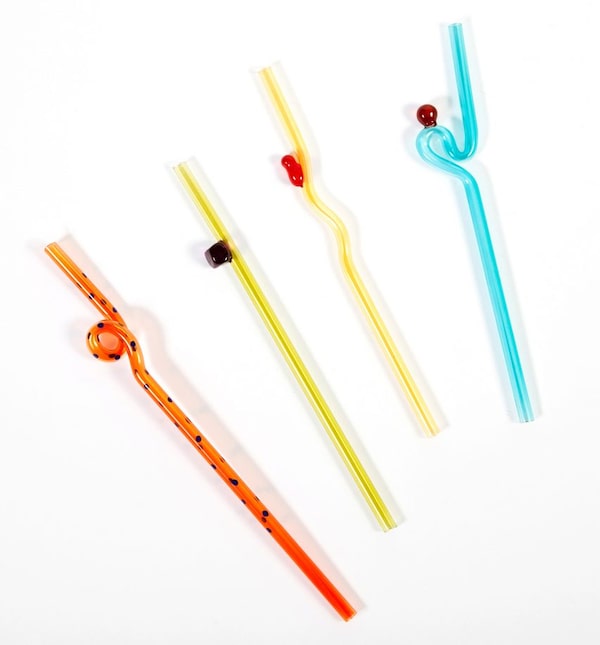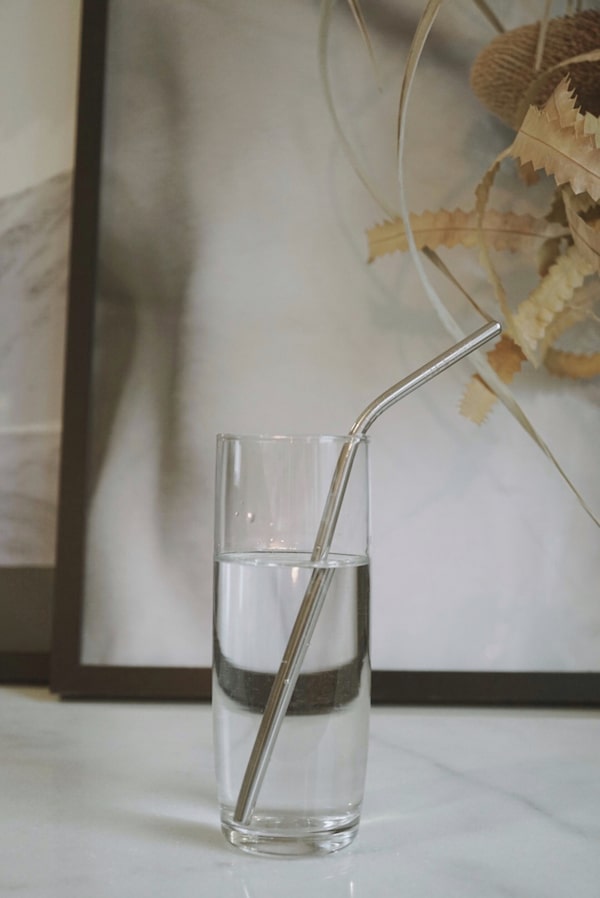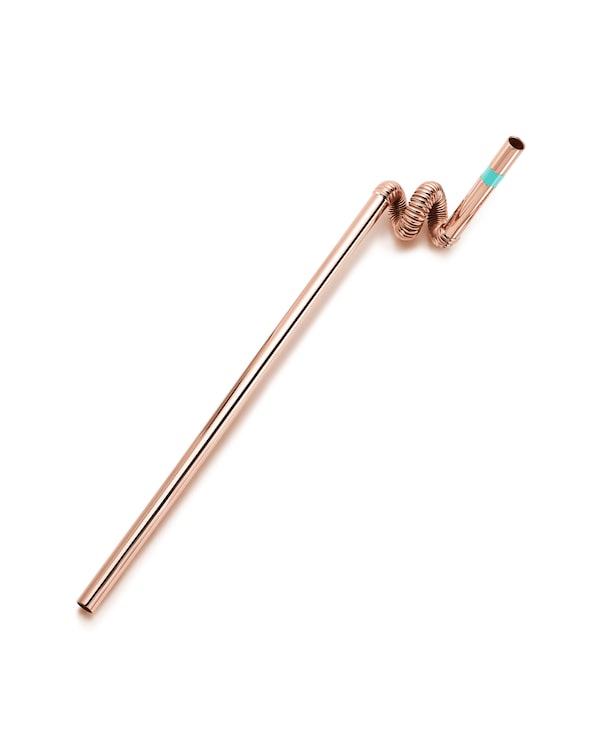
Prospect NY, which retails collaborative art-based collections, launched a line of cheeky, cheerful entertaining items with Misha Kahn at the recent Art Basel in Miami.Misha Kahn
Art Basel – the yearly glamorous gathering in Miami that boasts an over-the-top party scene and the launch of many creative careers – might seem like an odd place for the concept of sustainability to get a makeover, but that’s exactly what happened this month when Misha Kahn came to town. The New York-based artist, known for idiosyncratic mixed media decor projects, showcased an offering of chic outdoor entertainment items in collaboration with Prospect NY that included aluminum cups, a brass bottle opener and a quartet of cheery glass straws.
While design-minded water bottles and tote bags have been the focus of many start-ups in recent years, the statistic that 57 million straws are used every day in Canada – as well as the viral video showing a turtle with a plastic straw stuck in its nose – is prompting many people to further consider the tremendous amount of single-use plastic in our everyday lives. And as more cities follow Vancouver, which is set to ban plastic straws in the fall of 2019, the opportunity for brands, established and emerging, to elevate the humble drinking straw is significant.
“We started talking a couple of years ago about doing something,” Kahn says of the new collaboration, called Bellyflop, which launched poolside at the swish Edition Hotel. “I look at vintage anodized cups as colour references all the time and had kind of dreamed of making some, and the rest of the pool collection kind of followed suit.” The four straws, handmade in Turkey and sold as a set for US$100, recall the playful Krazy Straws of youth, but with one major difference. “Obviously, the uproar about straws recently kind of made us want to respond,” Kahn says. “I love how sassy it is to just lazily sip from straws, so making reusable, precious ones seemed like the right move – treating them as jewellery, not one-time-use plastic trash.”

Vancouver-based jewellery brand is including a custom stainless-steel straw with purchases.Foe & Dear
Indeed, these novel straws are built to last in your home, not in an ocean or a landfill. Tiffany & Co. offers a rose-gold straw for $510 that takes its curvy shape from the circular straws popped into beverages at a kids' party, while Klean Kanteen’s straws are done in a more utilitarian design of stainless steel. They also come with silicon tips to alleviate the issue of tapping teeth on a metal object (as well as a bit of temperature control, should you be sipping on a hot or icy beverage). Foe & Dear, an environmentally conscious jewellery brand that makes its pieces in Vancouver, recently announced that customers would receive a limited edition, custom stainless-steel straw with purchase. “[Customers] are over the moon about it,” Foe & Dear founder Katherine Schlattman says. “It’s another small step that we can do for people that will actually impact something.”
FinalStraw, a recently patented portable straw that launched with a Kickstarter campaign in October, 2017, was co-founded by Whistler, B.C.-based Emma Rose Cohen. Cohen has a Master’s degree in environmental management and sustainability from Harvard, and was introduced to FinalStraw’s president and co-founder, Miles Pepper, through a mutual friend who saw their potential synergy when it came to environmentally minded product design. It was an experience at Starbucks that prompted Pepper to consider our daily impact on the environment, but Cohen has been promoting the “anti-straw” movement for many years. “I have been obsessed with plastic straws for over a decade,” she says, adding that she did a TedX Talk on the subject in 2015.

Tiffany's range of decadent Crazy Straws launched in 2017 as part of its new Home & Accessories collection, which was creative director Reed Krakoff’s first collection for the house.Tiffany & Co
Her partnership with Pepper drew from the question, “What if there was a straw that was really compact, that you can bring around with you everywhere and it could solve this [wasteful] problem?” Cohen recalls Pepper’s fruitless online search for such a product, and notes that their timing was “kind of impeccable” in terms of a business idea. The FinalStraw Kickstarter campaign, which raised more than US$1.89-million, aligned perfectly with news stories such as those that came out of Seattle last summer when it became the first major U.S. city to ban plastic straws.
Cohen notes that the FinalStraw approach to marketing, which relies on relatability rather than “finger-wagging environmentalism,” as she calls it, has undoubtedly contributed to the brand’s success. It’s a model that has served other companies, such as S’well and their vast range of reusable bottles, very well when it comes to changing people’s minds and habits. Who wouldn’t want to wrap their lips around FinalStraw’s happy-making, rainbow-hued straw while enjoying their daily iced latte? As Cohen says, the plastic straw has become a sort of “poster child for wasteful convenient behaviours,” the kind that drives North American consumerism and has put us in the dire environment situation we read about endlessly these days. “For the longest time I just thought the solution to the problem was to get rid of straws; but you can’t do that,” she says. “Instead of just saying ‘no’ and taking it away, you have to design something different that is going to alleviate the problem and also empower the consumer to make a choice that they’re proud of.”
Visit tgam.ca/newsletters to sign up for the weekly Style newsletter, your guide to fashion, design, entertaining, shopping and living well. And follow us on Instagram @globestyle.